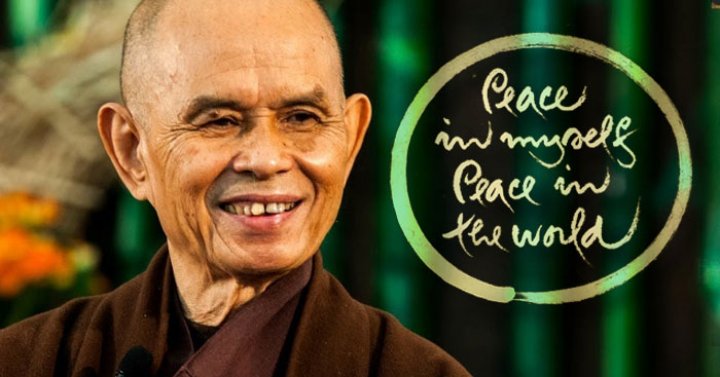
Thich Nhat Hanh has published nearly 100 books and is one of the best-known teachers of Zen Buddhism in the world today.
In the early 1960s, his practice of what he termed ‘engaged Buddhism’ led him to create the School for Youth and Social Services to provide education, housing, and medical care for victims of war in his native home, Vietnam. In 1966, Nhat Hanh visited the United States and Europe on a peace mission and was forbidden to return home. A year later Martin Luther King Jr. nominated him for the Nobel Peace Prize.
For 34 years, his home in exile has been the monastery of Plum Village in southern France, where he continues to live with his community of Buddhist monks and nuns. In October 2016, Thåy — ‘teacher’, as he is affectionately known — turned 90 years old.
 Plum Village, in the south of France, where Thich Nhat Hanh lives in exile.
Plum Village, in the south of France, where Thich Nhat Hanh lives in exile.Nhat Hanh was interviewed in Plum Village by filmmaker, Martin Doblmeier, of Journey Films, for a documentary on forgiveness.
Martin Doblmeier: During the Vietnam War, your own people found themselves deeply divided. Talk about the lessons learned from the peace movement then.
Thich Nhat Hanh: There was a lot of suffering and people found themselves in a situation where they had become enemies of each other. So in such a situation, you have to find a way to survive and to help others survive. We had to show people the way to act properly because if you don’t have peace within yourself, it is very difficult to work for peace. Our thinking was, the other person is not our enemy. Our enemies are misunderstanding, discrimination, violence, hatred, and anger. With that kind of insight, we conducted the peace movement.
Doblmeier: But over the years of war you were witness to so much suffering and tragedy. How could you not be overcome with anger?
Nhat Hanh: If you are filled with anger, you create more suffering for yourself than for the other person. When you are inhabited by the energy of anger, you want to punish, you want to destroy. That is why those who are wise do not want to say anything or do anything while the anger is still in them. So you try to bring peace into yourself first. When you are calm, when you are lucid, you will see that the other person is a victim of confusion, of hate, of violence transmitted by society, by parents, by friends, by the environment. When you are able to see that, your anger is no longer there.
 Anger creates more suffering for yourself than for others.
Anger creates more suffering for yourself than for others.Doblmeier: When that anger begins to subside and your thinking becomes clear, is the foundation in place for forgiveness to begin?
Nhat Hanh: Forgiveness will not be possible until compassion is born in our heart. Even if you want to forgive, you cannot forgive. In order to be compassionate, you have to understand why the other person has done that to you and your people. You have to see that they are victims of their own confusion, their own worldview, their own grieving, their own discrimination, their own lack of understanding and compassion.
Doblmeier: In a practical way, how can we enliven that understanding and compassion within our own communities and families?
Nhat Hanh: Suppose you are angry at your father. Many people are angry at their father, and yet if they don’t do anything to change it when they grow up, they will repeat exactly what their father did to them. They will do that to their own children. That is why we have a wonderful exercise of meditation that has helped so many angry sons and daughters who come to Plum Village:
Breathing in, I see myself as a 5-year-old child. Breathing out, I hold that 5-year-old child in me with tenderness. Breathing in, I see the 5-year-old child in me as fragile, vulnerable, easily wounded. Breathing out I feel the wound of that little child in me and use the energy of compassion to hold tenderly the wound of that child.
But then you continue — breathing in, I see my father as a 5-year-old boy. Breathing out, I smile to my father as a 5-year-old boy. Breathing in, I see how as a 5-year-old child my father was fragile, vulnerable. Breathing out, I feel compassion for my father as a 5-year-old boy.
When you are capable of visualizing your father as a 5-year-old boy, fragile, tender, full of wounds, you begin to understand and feel compassion. When the son is capable of practicing understanding and compassion, he no longer suffers and the father in him is also transformed. That moment, compassion is born in your heart. Now it is possible to forgive.
 Often we act out from our pain, but compassion helps us to forgive ourselves and those who hurt us.
Often we act out from our pain, but compassion helps us to forgive ourselves and those who hurt us.Doblmeier: So often it seems the way we hurt each other is through our failure to listen to the other person or through the harsh words we speak.
Nhat Hanh: You have to be very compassionate in order not to get angry when you listen to the other person, because their speech may be full of condemnation, blame, judgment, and so on.
If you don’t nourish compassion in you, you cannot listen very long. You say, “I listen to him only with one purpose, to give him a chance to empty his heart. I am doing charity work.” But compassion will protect you from anger, and that is why compassion is the antidote for anger. With compassion, you can relate to other people. Without compassion, you are cut off.
If you master the art of listening deeply and of compassion, you can open the heart of the other person. If you know how to convey your feelings that are inside you through loving speech, you can help the other person understand you. That is why in order to re-establish communication, in order for forgiveness to be possible, you should learn to practice these two wonderful things — compassionate listening and the language of loving speech.
Doblmeier: It is not possible to understand forgiveness without understanding suffering?
Nhat Hanh: At the heart of Buddhism is the idea of interconnectedness. We all suffer. That is the first noble truth of Buddhism: Suffering is a reality. And the practice begins with the awareness that suffering is there in you and it is there in that other person. When you have seen suffering, you are motivated by the desire to remove suffering — the suffering in you and the suffering in that other person — because if that person continues to suffer, it will make you suffer somehow later on. So helping other people remove their suffering means doing something for you also.
 Open others’ hearts by listening and speaking with compassion.
Open others’ hearts by listening and speaking with compassion.Doblmeier: But there are times when the person who has hurt you has no intention of asking for your forgiveness and has no interest in your compassion.
Nhat Hanh: An act of compassion always brings about transformation. If not right now, it will happen in the future. The important thing is you don’t react with anger. You react with compassion, and sooner or later you see the transformation in the other person. You keep being compassionate, you keep being patient.
Doblmeier: Patience is something you have learned in your own life. You endured 40 years in exile for the chance to return to your home in Vietnam, and finally, the moment came in 2005. I saw pictures of the throngs who greeted you at the airport, and in your eyes, I could see you embrace the moment.
Nhat Hanh: The government has done many wrong things — a lot of injustice. When they allow you to go home, that does not mean they have understood you or that they look at you now as a friend. But they do it politically because they are gaining something by allowing a person like you to come home. And you know that. But you go home with the intention to help; with the intention to help not only innocent people, victims of violence, of injustice, but you have the intention to help those who have done injustice to other people. You don’t carry any anger and you are capable of looking at them all as friends and friends-to-be.
 If you plant the seed of compassion, transformation will happen in due time.
If you plant the seed of compassion, transformation will happen in due time.Doblmeier: But not everyone there was interested in being your friend?
Nhat Hanh: In the hotel, there were secret police watching us at all times. We encountered a lot of difficulties, but we always remained calm. The secret police found out we were true practitioners. At first, we were only allowed to speak in temples, but after a time we were able to change their attitudes and they allowed us to hold public talks. We were able to address hundreds of Communist Party members and government officials. It was the first time these Communist officers were exposed to the teaching of the Buddha, the teaching of loving-kindness and compassion. So not only did we help the people who wanted us to help, but we helped the people who didn’t want us to help.
Doblmeier: When you looked out on the crowds that came for your public talks, what did you see?
Nhat Hanh: During my absence, about 35 million people were born in Vietnam, and most of the people of my generation have died. So when I sat in front of an audience of 3,000 or 5,000 people, I saw only children of my generation. I look deeply and I see they are the continuation of the people of my generation, and I was speaking to them like I speak to the people of my generation. Their environment has watered the seed of anger, grieving, and discrimination. The purpose of speaking to them is to water the seed of brotherhood, sisterhood, joy, and hope in them. That is the most noble thing to do.
Source: http://upliftconnect.com/power-of-compassion/
Disclaimer: We at Prepare for Change (PFC) bring you information that is not offered by the mainstream news, and therefore may seem controversial. The opinions, views, statements, and/or information we present are not necessarily promoted, endorsed, espoused, or agreed to by Prepare for Change, its leadership Council, members, those who work with PFC, or those who read its content. However, they are hopefully provocative. Please use discernment! Use logical thinking, your own intuition and your own connection with Source, Spirit and Natural Laws to help you determine what is true and what is not. By sharing information and seeding dialogue, it is our goal to raise consciousness and awareness of higher truths to free us from enslavement of the matrix in this material realm.
 EN
EN FR
FR



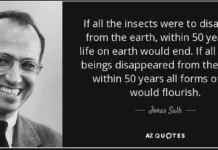



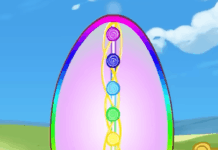
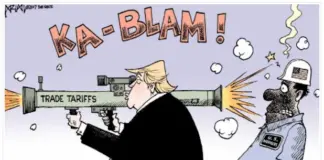

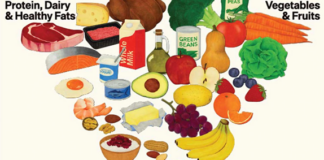















People who have cancer are very angry individuals who have never allowed themselves to feel what is building up inside. I have found that the statement to me “I love you, sorry you had to go through that” releases a lot of anger. Compassion for ones-self first. And I write the anger on paper and burn the paper with a statement of forgiveness to the individual and myself for not taking better care of myself, for not loving myself” as I walk in a counter-clock-wise circle to release the energy. This works for me like nothing else because intention brings results, but we have to give ourselves permission to face the anger first. When we have had our fill, we will in fact do something about the problem, but it has to be in a way that leaves us empowered and full of self-respect. Revenge is how the dark forces fell in consciousness and never works because to the ego its never enough!
What I felt by reading your comment, Dhara Wood, is the presence of a double bind relationship with anger.
Not meaning in you personally, but in what I sensed as presented in your words. The anger about being angry is a nasty loop. One effect of deliberately releasing negative feelings, in this case anger, is that it can become a perpetuem mobile when anger is rising about feeling angry and when finding anger inside is supposed to be followed by a process of release, done on purpose. There’s a dictation of a rule that is contradictory to what a person in anger needs, as I perceive it.
Compassion for oneself first, what it means to me is the openness and ability to be with anger and reach beyond the anger in a gentle gesture called compassion. Finding the desire that isn’t fulfilled, the pure and innocent state of being that reflects our true self. The place of our inner child, as I perceive it. When that’s abandoned we live in a seed-fear. Living in that seed-fear, humanity tends to create conditions, growing from that seed, showing up as triggers, causing humans to be angry, feeling that it’s a legitimate emotion.
In all enlightened awareness of pschycological and mental distress in human beings and the changes in our society, with Reich, Freud and Jung as members of that society, that it’s acknowledged that we all suffer from it, more or less, breaking the taboo of silence about it by collectively opening up to address the taboo.
What happened as a side effect of the sixties’ spiritual awakening, is that forms of therapy were designed to release the tension of suppressed emotions. A deliberate attempt to address these emotions, causing a forceful opening of a shell that often better should’ve been left at peace. When do we welcome truth as a friend?
After all, what’s helpful in a therapy that aims for the release of emotional turmoil for the sake of releasing, calculated with the mind as a thing that is needed and helpful? Without discernment if the person involved is ready to receive such treatment. In other words, how to know when the shell is ready to crack?
Not to be concerned about..
http://www.ascensionsymptoms.com
https://books.google.com.au/books?id=TMo6f0sb9j0C&pg=PA219&lpg=PA219&dq=ascension+dealing+with+worst+case+scenario&source=bl&ots=qOXbaPtGdq&sig=F_7sagHcXLHO9sF8N2t1ZUpFgKU&hl=en&sa=X&ved=0ahUKEwiNjo-UrMXSAhUDOJQKHYl5BOQQ6AEIIzAC#v=onepage&q=ascension%20dealing%20with%20worst%20case%20scenario&f=false
Shashwat Pranam . Thank you so much. Victory of the light love and peace forever more. Namastey